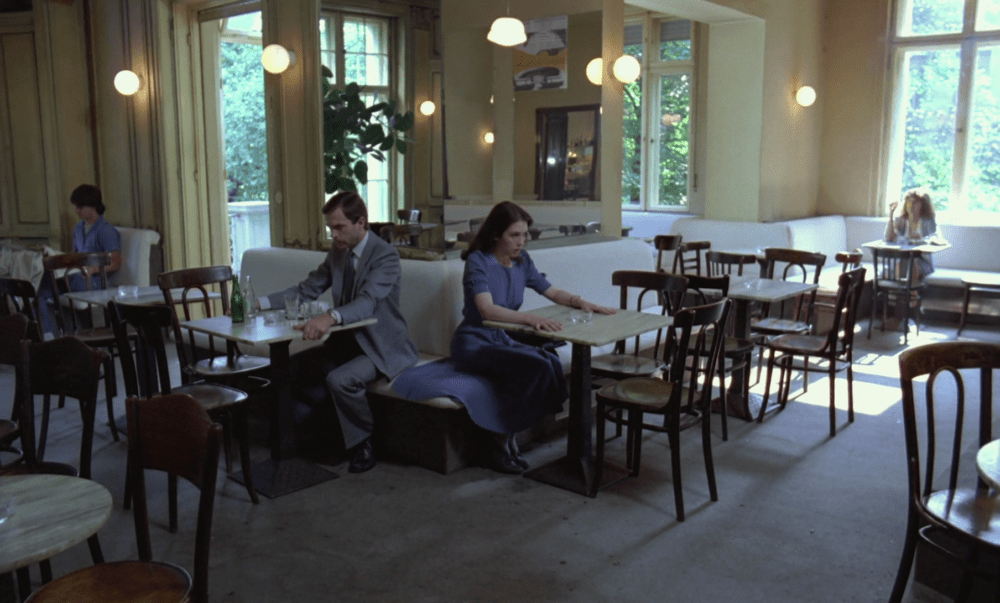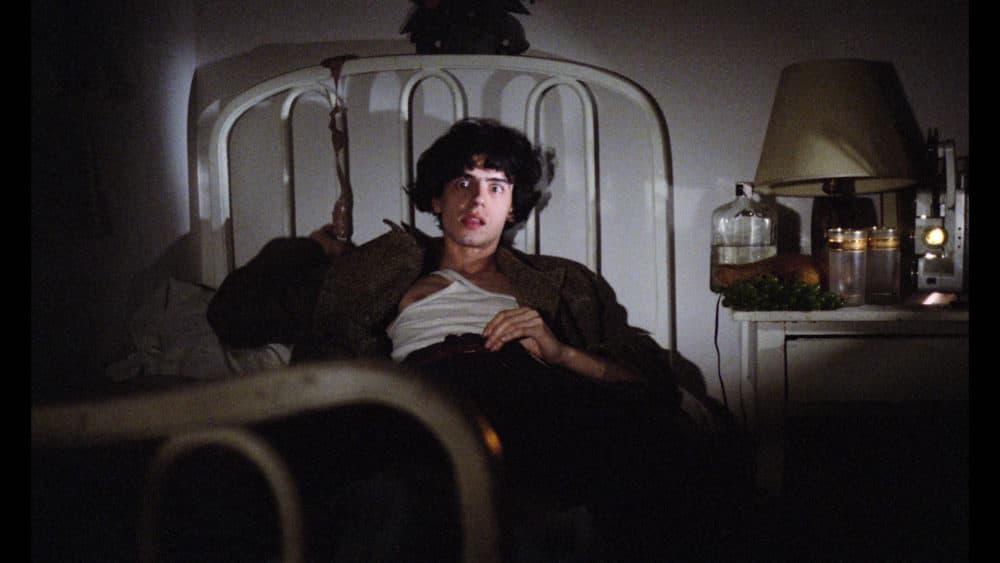Advertisement
Commentary
At the Brattle, abstract cult films 'Possession' and 'Arrebato' are returning to the screen

The scariest horror movies — to this critic, anyway — operate according to a logic entirely their own. We live in an annoyingly literal-minded era, with Vox explainers, Reddit threads and whole subsections of the internet devoted to explaining away any ambiguity as if movies were crossword puzzles to be solved instead of works of art to be experienced. Yet for those of us who prefer the abstractions of Stanley Kubrick and David Lynch to the exposition of M. Night Shyamalan and Christopher Nolan, the most frightening films remain the most stubbornly unknowable, and the Brattle Theatre is bringing back a couple of doozies this month. Despite never being properly released in the United States, both Andrzej Żuławski’s 1981 “Possession” and Iván Zulueta’s 1979 “Arrebato” have amassed ardent cult followings on the midnight and bootleg circuits over these past 40 years. Now they’ve finally, formally arrived in nifty new restorations and you think you might be ready, but you’re not.
Żuławski’s “Possession” is a singular cinematic experience and probably the greatest breakup movie ever made, in which all the attendant, roiling emotions are externalized and untethered from any recognizable reality. Sam Neill stars as a spy who returns home to Berlin after a long mission to discover that while he was away, his wife — a ballet teacher played by Isabelle Adjani — has taken up with another man. In a pointed rebuke to the then-popular and exceedingly tasteful relationship woes of Ingmar Bergman’s “Scenes From a Marriage” and Robert Benton’s “Kramer vs. Kramer,” Żuławski’s unhappy couple starts the movie screaming at each other and it only escalates from there. The point of no return for most audiences arrives pretty early, when during an argument in the kitchen while making dinner, Adjani begins sawing away at her own neck with an electric carving knife.

Żuławski’s camera is constantly hurtling through these scenes, pushing up too close into the actors’ personal spaces and spinning around them in incomplete half-circles. The performances are designed more like modern dance than anything resembling regular behavior, the dialogue shouted and their elongated movements twitchy and deliberately unnatural. There’s never a moment of rest. Neill violently vaults himself back and forth in a rocking chair while Adjani manically mashes her wrists together, fingers flailing. (Some scenes were rumored to have been shot under hypnosis.) It is the most unhinged movie I’ve ever seen, and that’s before we get to the disappearing detectives and doppelgängers, or when she starts sneaking off to have graphic sex with a giant, slimy tentacle monster.
The film’s notorious centerpiece is an astonishingly sustained fit of acrobatic derangement in a subway tunnel by Adjani, hurling herself against the walls while having some sort of alien miscarriage, spouting viscous goo from every orifice. Adjani won Best Actress at the Cannes Film Festival that year, as well as the César, France’s equivalent to the Oscar, and perhaps should have been awarded a medal of valor as well, all things considered. “Possession” was hardly received so warmly elsewhere; the film was banned in the U.K. via the “video nasties” list and shorn of 40 minutes — a full third of its running time — for a limited U.S. video release. (Amusingly, I’m told New York’s Anthology Film Archives maintained a print of Żuławski’s cut and used to screen it on every Valentine’s Day.)
Yet for all this madness, I’d dare say the movie is quite moving, and coherent where it counts. Anyone who’s been through a bad breakup will recognize Żuławski’s seasick, world-upside-down staging as emotionally truthful, however hyperbolically realized, with the creature effects and kitchen knife compulsions standing in for the see-sawing attraction and repulsion of two people who can’t stop hurting each other. The movie exhibits a sly sense of its own ridiculousness, while at the same time the doppelgängers speak to deep-seated fears of being replaced in our lovers’ lives, the gross-out visuals being our most jealous imaginations of what they’re doing without us. “Possession” isn’t going to tell you where these monsters are coming from. But if you’re old enough to be watching it, you probably already know.

“Arrebato” is much more of a slow-burn, languorously paced in accordance with the copious — and reportedly unsimulated — heroin use of its doomed filmmaker protagonist, a thinly veiled stand-in for director Zulueta himself, whose promising career as a leading light of Madrid’s post-Franco film movement was cut short by his habit. Eusebio Poncela stars as a self-loathing, horror movie hack whose estranged girlfriend (Almodóvar regular Cecilia Roth) shows up zonked at his apartment the same day he receives a mysterious film reel in the mail from an old drug buddy. Both are bad news.
Like a 16mm version of “The Ring” crossed with a Velvet Underground song, the movie posits unseen, parasitic creatures creeping in and feeding on camera subjects while they’re being photographed, leaving blood-red splotches on the emulsions behind them. It’s unsurprising that “Arrebato” is beloved by so many filmmakers — the reissue arrives advertised as “Pedro Almodóvar’s favorite horror film” — because it’s a vampire movie in which movies themselves are the vampires. Cinema is another seductive, destructive drug eating away at our afflicted heroes, who wallow here in decadence and some admittedly sumptuous sleaze.
Advertisement
Any attempt to explain the plot particulars would sound silly and probably make no sense. But the title translates to "Rapture" for a reason. What works is the movie's overwhelmingly malevolent atmosphere and Zulueta's seedy evocation of sex, drugs and cinema as illicit pleasures to be savored the dark.
“Possession” runs at the Brattle Theatre from Friday, Nov. 12 through Thursday, Nov. 18. “Arrebato” runs from Friday, Nov. 19 through Sunday, Nov. 21.
